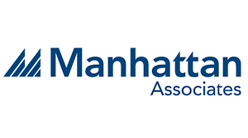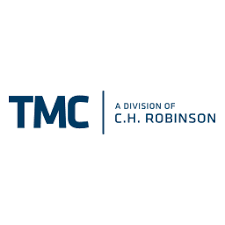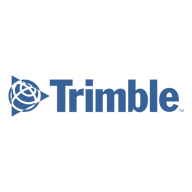
Managed transportation services continue to be the #1 topic we talk with shippers about as they look to optimize their supply chain performance against the challenging backdrop of rising freight rates, tight truck capacity, along with changing and more challenging customer requirements.
As we work our way through the discussion of Managed TMS, we invariably are asked what we believe are the best transportation management software (TMS) platforms in the industry.
To help buyers through their TMS selection process of upgrading their supply chain technology, we want to be as transparent and upfront as possible on the other TMS software options so they can work through what system will be the best fit for them because there is not a one size fits all answer on the topic.
With that said, let’s go through the list and then have a short discussion on how to assemble a requirements document.
Top Transportation Management Systems (TMS)
-
3Gtms
-
e2open
-
Descartes
-
Blue Yonder
-
Manhattan
-
MercuryGate
-
Oracle
-
SAP
-
TMC - A Division of C.H. Robinson
-
Trimble
-
Uber Freight TMS (formerly Transplace)
Prefer your "Best of" lists in video form? Check it out here:
Best Transportation Management Systems (TMS)
3Gtms
Headquarters: Shelton, Connecticut
Website: www.3gtms.com
Cloud-based provider of end-to-end TL, LTL, and parcel capabilities for omnichannel shippers, e-commerce companies, 3PLs, and freight brokers. The solution performs order management, freight planning, carrier rating, execution, and settlement from a single screen for easier management of complex shipping. The software is used in North America and internationally with a relatively low TCO.

e2open
Headquarters: Austin, Texas
Website: www.e2open.com
Summary: Plan, procure, execute, track and settle shipments with e2open's transportation management system (TMS) for all modes and regions - domestic and international logistics for shippers, freight forwarders, carriers, and logistics service providers (LSPs).
Descartes
Headquarters: Waterloo, Canada
Website: www.descartes.com
Summary: Offers a stand-alone TMS and managed TM services. Robust capabilities with both domestic and international capabilities for shippers and 3PLs supporting all freight modes. TCO is relatively competitive.
Blue Yonder
Headquarters: Scottsdale, Arizona
Website: blueyonder.com
Summary: Largest independent SCM suite vendor. Robust platform for large complex shippers and third party logistics companies. Handles global supply chain requirements. Total cost of ownership (TCO) is high in comparison to other TMS platforms.
Manhattan
Headquarters: Atlanta, Georgia
Website: www.manh.com
Strong history going back almost three decades. TMS comes out of the box with integrations into the Manhattan supply chain applications. Sold more as an add-on to their WMS. TCO is relatively high.
MercuryGate.png?width=238&name=MercuryGate-Logo-RGB-Vertical-Blue%20(1).png)
Headquarters: Cary, North Carolina
Website: mercurygate.com
Summary: Customer base primarily North American oriented. A robust platform that supports domestic and international modes of freight for companies of all sizes. Continues to add to its capabilities. Cost of ownership is competitive. Buyers need to be aware of the flexibility and maximize it versus custom coding. TMS supports 3PL, broker, shipper and private fleet companies.
Oracle
Headquarters: Redwood Shores, California
Website: www.oracle.com
Summary: Robust platform for large complex shippers and third party logistics companies, although working its way into medium sized shippers and 3PL’s. Handles global supply chain requirements very well. TCO is high in comparison to other TMS platforms.
 SAP
SAP
Headquarters: Walldorf, Germany
Website: www.sap.com
Summary: Robust platform that has integration with its ERP and SCM product software. Robust platform for medium and large complex shippers and 3PL’s. Handles global supply chain requirements well. Partners with Descartes for some of its functionality with carrier communication. TCO is high versus the various TMS platforms.
TMC - A Division of C.H. Robinson
Headquarters: Eden Prairie, Minnesota
Website: www.mytmc.com
Summary: TMS and TMC came about through building the software to support its brokerage division. Robust TMS with plenty of capabilities to support all modes of domestic and international freight. Both a standalone TMS and managed TM solution, although more known for its strong managed TM service. Pricing can be confusing for standalone TMS users, so ask the questions and vet thoroughly. Focused on medium to large shippers. TCO is relatively mid to high range.
Trimble
Headquarters: Minnetonka, Minnesota
Website: transportation.trimble.com
Summary: Robust TMS with an ability to support non-asset and internal fleet for shippers and 3PLs, although tend to find the solution more in carriers and brokers. Primarily North American domestic focused.
Uber Freight TMS (formerly Transplace)
Headquarters: San Francisco, California
Website: www.uberfreight.com
More known for their managed TM option, but moving quickly sell their TMS as a standalone platform. North American focused with domestic and international capabilities, although international is through a partnership. TCO is reported to be relatively competitive. Medium to large shipper customer base.
TMS Requirements Document
With the top transportation management systems outlined, it is imperative for buyers to assemble a requirements document to make an objective decision. Too often we see companies make their decision on the flash and excitement, which causes them to make a suboptimal decision.
There are plenty of TMS requirements documents out there and we’ve listed a couple from the top TMS companies listed above:
InTek Freight & Logistics RFP Template
Gartner’s Magic Quadrant Analysis Key to TMS Buying Selection Process
The documents are a great start, which you will want to expand upon, with one being placing a rating of 1 to 10 next to each requirement based on how important it is to your company. The importance of the numbering is it will help in the objective decision when all the responses come in because it will give you an overall score of fit for your company.
There are two points to the scoring that need to be followed: it must be done before the requirements document goes out and the TMS vendors should not see the ratings until after they have filled it out. Missing either may drive an unintended bias after the fact.
Outline of Functionality to Include in a TMS Requirements Document:
 General Functionality
General Functionality
-
Inbound, Outbound and Intercompany
-
Modes of Freight Supports
-
Domestic & International Capabilities
-
Language
-
Currency
-
Geographic Data)
-
Technology Architecture, meaning Cloud or Mainframe
-
Scalable
-
Flexible
-
Ease of Integration
-
Supports Spreadsheets, FTP, EDI, XML or OCR of other Documents
-
Document Management
-
Capture of Freight Specifications
-
How Many Fields and Flexibility
-
Support POs for Inbound Management
Rating and Contracts
-
Freight Sourcing and Bid RFP Optimization Tools
-
Modes Supported - Domestic and International
-
Carrier Freight Rating and Contract Management
-
Integration to Load Boards
-
Ability to Turn Quotes Immediately to Loads
Strategic and Tactical Planning
-
Analytical Tools for Strategic Planning
-
Daily Execution Tactical Planning
Operational Planning and Execution
-
Freight Order Management
-
Consolidation, Pooling and Stop-Offs
-
Daily Operational Optimization and Planning
-
Carrier Assignment and Communication
-
Appointment Management
Optimization Engine
-
Data to be Considered in Optimization
-
Can Optimization be Immediately Move to Execution
Dedicated Fleet Optimization with Non-Asset Requirements Reporting and Visibility
-
Track & Trace
-
Exception Alerts & Reporting
Web Portals
-
Assign and Brand to Customer
-
Assign by User ID
 Settlement
Settlement
-
Freight Audit, Payment and Settlement
-
Support OCR for Carrier Invoices and Document Management
-
Customer Billing
-
Electronic, Email, EDI, Mail, Etc.
Analytics
-
Analytics
-
Configurable and Flexible Reporting
-
Ad-Hoc
-
Static
-
Dashboards
-
Advanced to Support Strategic Analytics
After all the responses are received, you’ll need to go through the findings and ask your questions on the items that were of high importance, yet not base functionality in the TMS. The key points of diving further into the discovery process with the TMS suppliers are:
-
Will the software provider be able to build custom code.
-
How much will it cost?
-
Are they willing to put it into base code?
-
This point is often missed, but extremely important. The reason being is if the code is not put into base code any upgrades the TMS provider does in the next release may be difficult and costly for you to follow the upgrade. Fall behind too far in the upgrade cycle and your TMS will quickly be outdated and therefore uncompetitive.
Once you get through to the top 3 vendors, you’ll want to demo and further refine your decision.
Through the entire process ask the questions that will:
-
Give you the complete picture of the total cost of ownership.
-
Give you a full understanding of the customers that they work best with and want in the portfolio.
-
Let you to really get to know the people you will be working with during the integration and for long-term support and where they are taking their platform into the future.
-
Give you an overall comfort that you are making the correct decision for your team and the company you’re bringing the solution to for both now and into the future.
- What does the TMS implementation process look like?
- How long will it take before your company will begin realizing the benefits?
After all, you really need to look at a TMS software and any software selection that drives an operation as a marriage because the correct decision will drive a mutually beneficial and successful relationship many years into the future of your business, while a separation will be both painful and costly.
Last but not least, we recommend reading Top 10 Transportation Management Software (TMS) Implementation Pitfalls to Avoid and Gartner’s Magic Quadrant Analysis Key to TMS Buying Selection Process.
Also, for an even deeper dive into TMS software and market, we have a comprehensive article entitled "The Complete Guide to TMS Freight Software: Market, Capabilities and Solutions for Shippers." The chapters include:
- Introduction to Transportation Management Software (TMS)
- The Key Benefits of a TMS
- Top Trends to Watch for in Transportation Management System Solutions
- Top Transportation Management Systems & Functionality
- Cost of Transportation Management Systems
- Implementation of TMS
- Difference in TMS and Managed Transportation Services
Hopefully, you found the above information to be helpful. We’d love to be a part of your transportation management software (TMS) selection and / or managed transportation services discussions, so please keep us in mind. Just fill in our brief form, and we'll be happy to get in touch.
Learn more about InTek Freight & Logistics and subscribe to our blog.
Get Updates
Featured Articles
Categories
- Freight & Shipping Costs (54)
- Freight Broker (60)
- Freight Forwarder (2)
- Intermodal Transportation (184)
- International & Cross Border Logistics (43)
- Logistics & Supply Chain (420)
- Logistics Service Provider (77)
- LTL (39)
- Managed TMS (49)
- News (39)
- Supply Chain Sustainability (12)
- Transportation Management System (37)
- Truckload (122)
- Warehousing & Distribution (50)




